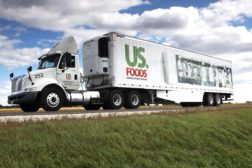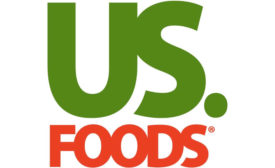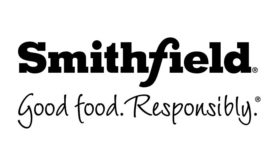Home » foodservice industry
Articles Tagged with ''foodservice industry''
The reopening kits include supplies like masks and safety guidance posters for independent restaurant operators.
Read More
US Foods Launches Restaurant Reopening Blueprint Program
As some cities loosen COVID-19 mandates, guide offers best practices for safe reopening.
May 18, 2020
Smithfield Culinary Donates $25,000 to Support Foodservice Industry Professionals Impacted by COVID-19
The money will go to the American Culinary Federation's Ferdinand Metz ACF Relief Fund.
May 13, 2020
Tyson and Sysco Quarterly Reports Show the Impact of COVID-19 Foodservice Shutdowns
Diversifying production, inventory and distribution toward other cold foods channels will be crucial in a post-COVID-19 world.
May 4, 2020
Study: Commercial refrigeration equipment market to witness growth from foodservice sector
The foodservice application sector will dominate the market, with shipments forecast to exceed 4.5 million units by 2024.
October 18, 2018
Dining Alliance, affiliated companies form partnership with Sodexo affiliate to enhance foodservice ecosystem
Over 20 purchasing-oriented firms have already joined Buyers Edge Platform, including purchasing consultants, technology providers, several GPOs, a loyalty rewards program, a leading fresh produce management company and several food and supplies manufacturers.
August 21, 2018
Arby’s acquires Buffalo Wild Wings
Following the close of the transaction, Buffalo Wild Wings will be a privately-held subsidiary of Arby’s.
November 28, 2017
Elevate your expertise in refrigerated and frozen foods with unparalleled insights and connections.
Get the latest industry updates tailored your way.
JOIN TODAY!Copyright ©2025. All Rights Reserved BNP Media.
Design, CMS, Hosting & Web Development :: ePublishing







